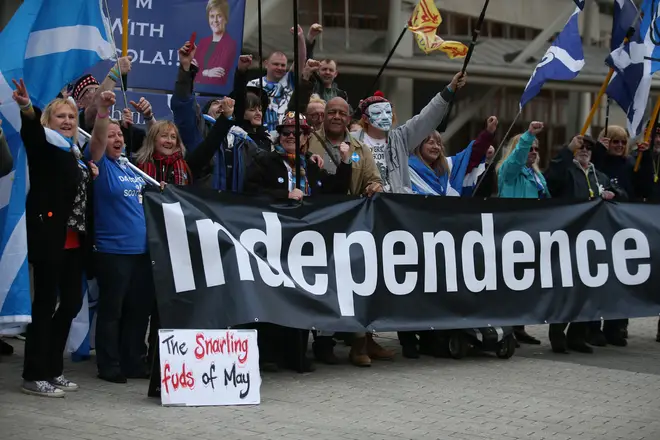
Simon Marks 3pm - 7pm
21 July 2020, 05:58

Russia attempted to “influence” the result of the Scottish Independence Referendum but not the Brexit vote, according to reports.
A long-awaited investigation by Parliament's Intelligence and Security Committee (ISC) is set to be published on Tuesday.
The so-called, Russia report is set to describe Moscow's attempt to divide the United Kingdom in 2014 as “the first post-Soviet interference in a Western democratic election”.
The Telegraph newspaper quoted sections of the report and said MPs and peers described the Kremlin's role in the vote that could have split the UK as "the first post-Soviet interference in a Western democratic election".
But the 18-month investigation by the ISC found there is nothing to suggest the Kremlin played any part in the UK's 2016 vote in independence from the European Union, according to the newspaper.

"Russia has been interfering in Western democracies for years"
The full document is set to be published following months of delays, days after Foreign Secretary Dominic Raab claimed it was "almost certain" that Moscow had tried to interfere in the 2019 election.
The ISC report, prepared by the committee's members in the previous Parliament, was postponed by Boris Johnson's decision to call a general election and the need to re-establish the committee's membership.
Mr Raab said last week that "Russian actors" had tried to influence the 2019 contest by "amplifying" stolen Government papers online.
The documents, relating to US-UK trade talks, were picked up by then Labour leader Jeremy Corbyn who said they were evidence the Conservatives were preparing to open up the NHS to US pharmaceutical companies.
Relations between the UK and Russia have been under severe strain since the Salisbury Novichok poisoning in 2018, which left former double agent Sergei Skripal and his daughter Yulia in hospital and led to the death of Dawn Sturgess.
The incident resulted in Russian diplomats being expelled from Britain by then prime minister Theresa May.
Mr Raab also announced this month, in a move that irked President Vladimir Putin's administration, that he was imposing sanctions on 25 Russian nationals linked to the death in custody of lawyer Sergei Magnitsky, who died in 2009 after exposing massive corruption in the Interior Ministry.
The ISC's alleged findings of interference in British democracy come after the UK, US and Canada claimed that Russian intelligence-linked hackers tried to steal details of research into coronavirus vaccines.
Russia's ambassador to the UK Andrei Kelin dismissed the accusations in a BBC interview.
He said his country had no interest in interfering in British domestic politics.
"We do not interfere at all," he said.
"We do not see any point in interference because for us, whether it will be (the) Conservative Party or Labour's party at the head of this country, we will try to settle relations and to establish better relations than now."
Asked about the alleged attempts to steal details of coronavirus research, Mr Kelin said: "I don't believe in this story at all, there is no sense in it."